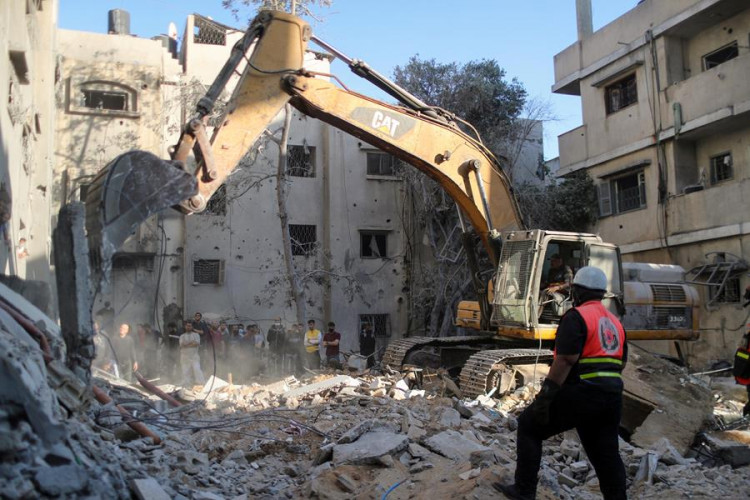As the conflict escalates in the Gaza Strip, the first wave of civilians, trapped since the war's onset more than three weeks ago, were evacuated to Egypt under a Qatari-mediated agreement. This evacuation arrives amidst ongoing Israeli airstrikes, including a consecutive assault on Jabalia, Gaza's largest refugee camp, that has claimed dozens of lives and caused severe injuries.
Following a particularly devastating strike on Tuesday, which Palestinian officials state killed around 50 people and injured 150 in Jabalia, the area was once more targeted on Wednesday. The aftermath was described by on-site witnesses as a "massacre." The Israeli military later confirmed its fighter jets targeted a Hamas command and control complex in Jabalia. Their statement declared the precision strike successfully eliminated Muhammad A'sar, the chief of Hamas's anti-tank missile unit. It further criticized Hamas for building its "terror infrastructure" in proximity to civilian establishments, deliberately jeopardizing Gazan civilians.
Dr. Fathi Abu al-Hassan, who held a U.S. passport, was among the evacuees. He shared a haunting account of the conditions in Gaza, where the scarcity of basic necessities such as water, food, or shelter is profound. "We open our eyes on dead people and we close our eyes on dead people," he lamented, emphasizing the dire need for international support.
The initial evacuation consisted of around 320 foreign passport holders and multiple severely injured Gazans, marking the beginning of the Egypt-brokered deal which involves both Israel and Hamas. Future plans anticipate the evacuation of nearly 7,500 foreign passport holders from Gaza over the coming two weeks. Many of these evacuees will travel by road to Cairo, aiming to catch flights from there. Tor Wennesland, the United Nations' Middle East peace envoy, commended this initial evacuation, calling it a step "in the right direction."
However, the humanitarian situation remains bleak. Israeli forces have continued their intensive bombardment on Gaza, further straining the region's already beleaguered medical facilities. Al Shifa hospital in Gaza, where medical student Ezzedine Lulu volunteers, offers a glimpse into the grim reality: its corridors shelter children from the continuous shelling. Lulu poignantly noted, "I can heal the wounds, I can stop the bleeding, I cannot heal the cold of these children's bodies."
The conflict erupted in full force after Hamas's incursion into southern Israel on October 7, which, according to Israeli sources, led to the deaths of approximately 300 soldiers and 1,100 civilians. Since then, the Palestinian death toll, as provided by the Gaza health ministry, has risen to at least 8,796, including 3,648 children.
Israel's actions, particularly the intensive bombing of Jabalia refugee camp, have drawn international criticism. Key figures, including the UN's humanitarian chief Martin Griffiths and the European Union's foreign policy head, Josep Borrell, expressed their profound shock and urged all parties involved to respect international "laws of war and humanity."
Despite Israel's commitment to eliminating Hamas and the continuing rocket fire from the Palestinian side, global concerns focus on the staggering civilian casualties and the deteriorating humanitarian conditions in Gaza.





